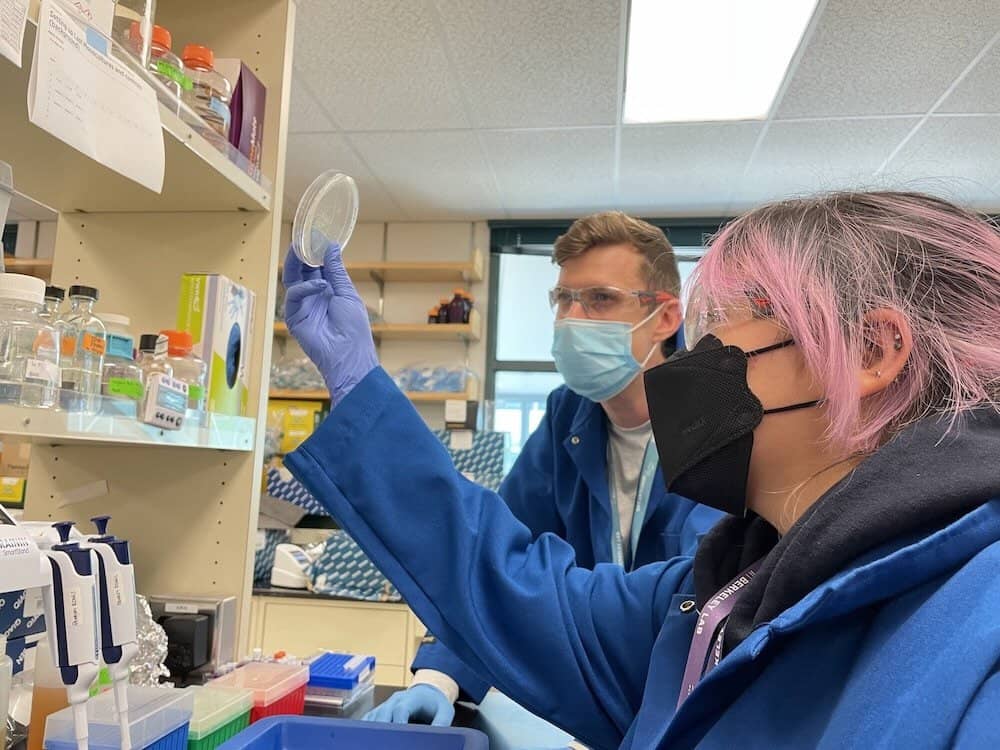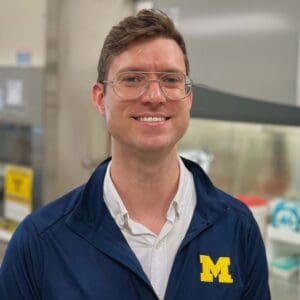
Bradley Biggs to join Michigan Chemical Engineering as an Assistant Professor
Bradley Biggs will join the Department of Chemical Engineering as an assistant professor this January.

Bradley Biggs will join the Department of Chemical Engineering as an assistant professor this January.
This January, Bradley Biggs will join the Department of Chemical Engineering at the University of Michigan (U-M) as an assistant professor. His research focuses on the development of sustainable chemical processes using metabolic engineering, synthetic biology, and microbial ecology.

“I am thrilled to join U-M’s collaborative and innovative research environment,” said Biggs. “The infrastructure here, paired with the exceptional faculty and students, provides the ideal setting to advance sustainable chemical synthesis.”
Biggs’ research centers on improving biochemical synthesis through microbial systems. His lab will investigate several approaches to enhance the sustainability and efficiency of chemical production. One key area involves incorporating renewable waste into traditional metabolic engineering workflows, developing microbial systems that can process complex feedstocks and operate under harsh industrial conditions.
His team will also focus on engineering microbial systems to increase robustness and efficiency in scaled processes by eliminating or repurposing unnecessary cellular pathways. Biggs is interested in incorporating novel synthetic biochemical pathways to enable complex chemical synthesis, particularly natural product synthesis, using microbial systems.
These efforts aim to address critical challenges in sustainable chemical production, aligning with society’s transition toward a circular economy.
Biggs earned his PhD in Chemical Engineering from Northwestern University in 2021. He also holds a Master of Science in Biotechnology from Northwestern and a Bachelor of Science in Chemical Engineering from the University of Southern California. Following his PhD, Biggs conducted postdoctoral research at Lawrence Berkeley National Laboratory from 2021 to 2024, where he explored microbial community dynamics and their applications in synthetic biology.
Prior to his academic career, Biggs gained industry experience at Manus Bio, where he worked on research and development projects related to sustainable bioprocesses.
At Lawrence Berkeley National Lab, Biggs’ postdoctoral work focused on microbial community behavior and how these communities form, stabilize, and function in diverse environments. His research explored how non-model organisms can be utilized to break down renewable waste into useful products. By integrating microbial ecology into chemical engineering, Biggs aims to create more efficient and scalable processes for sustainable chemical production.
His work has led to notable publications, including a 2021 Science paper that highlighted microbial processes for chemical synthesis. This project aligns with the mission of BioMADE, a synthetic biology consortium funded by the Department of Defense. Biggs’ engagement with BioMADE will continue at U-M, providing his lab with access to advanced testing facilities and enabling the scaling of microbial processes to industrial levels.
Biggs is enthusiastic about teaching and mentoring students, with plans to initially offer courses in separations and synthetic biology. He also aims to create a graduate-level course in synthetic biology, providing hands-on opportunities for students to design and engineer biological systems.
“I’m passionate about helping students connect classroom concepts to real-world applications,” Biggs said. “Understanding the ‘why’ behind core chemical engineering principles helps students stay motivated and see the bigger picture.”
As he prepares to join the department in January, Biggs is eager to collaborate with faculty and students.
“Michigan offers the perfect environment for advancing research in synthetic biology and metabolic engineering,” he said. “I look forward to working together on sustainable solutions that make a real-world impact.”